If you have a loved one struggling with drug or alcohol addiction, you may feel powerless watching them spiral further into their substance use. No matter how much you want to help, they may not be willing to acknowledge their problem or seek treatment on their own. They may even be resistant or combative when you suggest seeking help. This is where an intervention can make a difference.
An intervention is a structured conversation in which friends, family members, and sometimes professionals come together to encourage a loved one to accept help for their addiction. While it can be a difficult and emotional process, an intervention can be the turning point that leads your loved one to recovery.
Understanding When It Is Time for an Intervention
It can be hard to know when to step in, but certain signs indicate that an intervention may be necessary:
- Their substance use is affecting their daily life. If your loved one’s drinking or drug use is causing problems at work, school, or home, it’s a sign that they are no longer in control.
- They are engaging in risky behavior. Using substances while driving, mixing drugs and alcohol, or engaging in unsafe activities while under the influence can be life-threatening.
- They have experienced legal or financial trouble. Trouble with the law, job loss, or mounting debt due to substance use are red flags.
- Their health is suffering. Weight loss, frequent illness, and signs of physical or mental deterioration should not be ignored.
- They deny the problem or refuse help. If your loved one refuses to acknowledge that their substance use is an issue, an intervention may be the wake-up call they need.
What An Intervention Involves
A successful intervention requires planning. Simply confronting your loved one without a clear structure may lead to defensiveness or further resistance. Here’s how to approach an intervention:
- Gather a team. Choose close family members, friends, or colleagues who are affected by your loved one’s addiction. Consider including a professional interventionist or counselor who can guide the process.
- Plan and prepare. Each participant should decide what they want to say ahead of time. Keep messages focused on concern and support rather than blame or anger.
- Set consequences. Explain what will happen if your loved one refuses treatment. This might include limiting financial support, changing living arrangements, or cutting ties if necessary.
- Choose a treatment plan. Before the intervention, research treatment options such as Pacific Sky Recovery’s outpatient program. Presenting a clear plan makes it easier for your loved one to say yes to help.
- Hold the intervention. Meet in a private, calm setting and take turns expressing your concerns. Remain compassionate but firm in encouraging your loved one to seek help.
- Follow through. If your loved one agrees to treatment, support them in making arrangements right away. If they refuse, be prepared to uphold any consequences you outlined.
Who Should Be Included in an Intervention
An intervention should involve people who genuinely care about your loved one and have been impacted by their addiction. These may include:
- Close family members
- Trusted friends
- A spouse or partner
- Employers or coworkers (if appropriate)
- A professional interventionist or therapist
Avoid including anyone who may become confrontational or enable the addiction. The goal is to create a supportive environment that encourages change.
What to Do if Your Loved One Resists Help
It’s possible that your loved one will react with anger, denial, or excuses. This can be heartbreaking but don’t lose hope. Here’s what you can do:
- Stay firm. Reinforce your concerns and the consequences of their continued substance use.
- Give them time.: Sometimes, an intervention plants a seed, and your loved one may come around later.
- Continue setting boundaries. If they refuse treatment, stick to the boundaries you established.
- Seek support for yourself. Groups like Al-Anon or therapy can help you cope with the emotional toll of loving someone with an addiction.
How Pacific Sky Recovery Can Help
At Pacific Sky Recovery in Bellevue, Washington, we offer professional and confidential outpatient treatment for individuals struggling with substance use disorder. Our flexible program allows clients to receive therapy while continuing to live at home, work, or attend school. Our services include:
- Talk therapy (individual and group sessions) to uncover the root causes of addiction.
- Medication-assisted treatment to help manage cravings and withdrawal symptoms.
- A structured support system to guide clients toward long-term recovery.
If your loved one is ready to take the first step toward recovery, we are here to help. Contact Pacific Sky Recovery to learn more about our compassionate, evidence-based outpatient treatment options.
You don’t have to do this alone. With the right support, your loved one can find hope and healing.











